Abstract:
This article proposed an underwater simultaneous wireless power transfer and data transfer system for the autonomous underwater vehicle. The double-sided LLCC compensatio...Show MoreMetadata
Abstract:
This article proposed an underwater simultaneous wireless power transfer and data transfer system for the autonomous underwater vehicle. The double-sided LLCC compensation topology is proposed to effectively suppress the interference to the data channel at switching instant. With the increase of the size and turns of the coupling coils, the self-resonance frequency gradually decreases. However, the frequency of data carriers is usually much lower than the self-resonant frequency, which will reduce the data rate or improve the bit error rate at a high data rate. Moreover, the high voltage generated by coupling coils causes high voltage stress on the data channel. To deal with these two issues, the last turn of each coupling coil is used to transfer data in the proposed system. The two transceivers are, respectively, connected with the last turn of the two coupling coils, which excites the entire coils to self-resonate and generates two resonant frequencies. The two resonant frequencies are utilized to realize high-speed full-duplex communication. And the voltage stress of the data channel is effectively reduced. A 518-W full-duplex prototype is built, and the maximum data rate is 700 kb/s, which verifies the feasibility of the proposed system.
Published in: IEEE Transactions on Power Electronics ( Volume: 38, Issue: 1, January 2023)
Funding Agency:
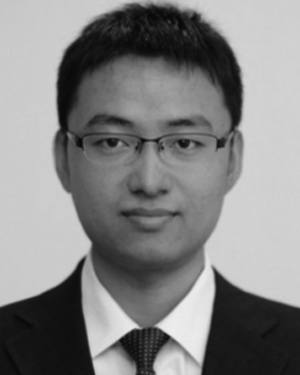
Harbin Institute of Technology, Harbin, China
Yijie Wang (Senior Member, IEEE) was born in Heilongjiang Province, China, in 1982. He received the B.S., M.S., and Ph.D. degrees in electrical engineering from the Harbin Institute of Technology, Harbin, China, in 2005, 2007, and 2012, respectively.
From 2012 to 2014, he was a Lecturer with the Department of Electrical and Electronics Engineering, Harbin Institute of Technology. From 2014 to 2017, he was an Associate Prof...Show More
Yijie Wang (Senior Member, IEEE) was born in Heilongjiang Province, China, in 1982. He received the B.S., M.S., and Ph.D. degrees in electrical engineering from the Harbin Institute of Technology, Harbin, China, in 2005, 2007, and 2012, respectively.
From 2012 to 2014, he was a Lecturer with the Department of Electrical and Electronics Engineering, Harbin Institute of Technology. From 2014 to 2017, he was an Associate Prof...View more
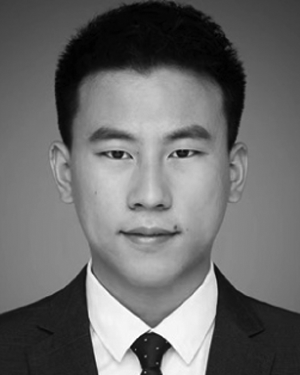
Harbin Institute of Technology, Harbin, China
Tao Li (Graduate Student Member, IEEE) was born in Liaoning, China, in 1997. He received the B.S. and M.S. degrees in electrical engineering from the Dalian University of Technology (DUT), Dalian, China, in 2018 and 2021, respectively. He is currently working toward the Ph.D. degree in electrical engineering with the School of Electrical Engineering and Automation of Harbin Institute of Technology (HIT), Harbin, China.
His...Show More
Tao Li (Graduate Student Member, IEEE) was born in Liaoning, China, in 1997. He received the B.S. and M.S. degrees in electrical engineering from the Dalian University of Technology (DUT), Dalian, China, in 2018 and 2021, respectively. He is currently working toward the Ph.D. degree in electrical engineering with the School of Electrical Engineering and Automation of Harbin Institute of Technology (HIT), Harbin, China.
His...View more
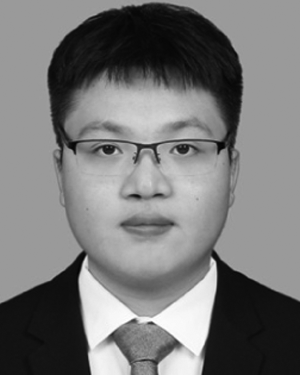
Harbin Institute of Technology, Harbin, China
Ming Zeng was born in Hunan, China, in 1999. He received the B.S. degree in electrical engineering, in 2021, from the Harbin Institute of Technology, Harbin, China, where he is working toward the M.S. degree.
His research interests include wireless power and data transfer and magnetic coupling structure design.
Ming Zeng was born in Hunan, China, in 1999. He received the B.S. degree in electrical engineering, in 2021, from the Harbin Institute of Technology, Harbin, China, where he is working toward the M.S. degree.
His research interests include wireless power and data transfer and magnetic coupling structure design.View more
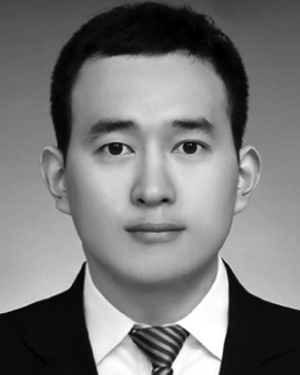
Harbin Institute of Technology, Harbin, China
Jianwei Mai (Student Member, IEEE) was born in Henan, China, in 1994. He received the B.S. degree in electrical engineering, in 2017, from the Harbin Institute of Technology, Harbin, China, where he is working toward the Ph.D. degree.
His research interests include inductive power transfer and magnetic coupling structure design.
Jianwei Mai (Student Member, IEEE) was born in Henan, China, in 1994. He received the B.S. degree in electrical engineering, in 2017, from the Harbin Institute of Technology, Harbin, China, where he is working toward the Ph.D. degree.
His research interests include inductive power transfer and magnetic coupling structure design.View more
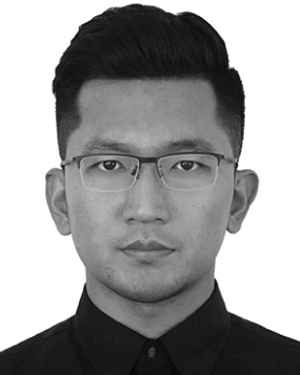
Harbin Institute of Technology, Harbin, China
Peng Gu (Graduate Student Member, IEEE) was born in Harbin, Heilongjiang Province, China. He received the B.S. degree in electrical engineering from the Huazhong University of Science and Technology, Wuhan, China, in 2015, and the M.S. degree in electrical engineering from the China Electric Power Research Institute (CEPRI), Beijing, China, in 2018. He is currently working toward the Ph.D. degree in electrical engineering...Show More
Peng Gu (Graduate Student Member, IEEE) was born in Harbin, Heilongjiang Province, China. He received the B.S. degree in electrical engineering from the Huazhong University of Science and Technology, Wuhan, China, in 2015, and the M.S. degree in electrical engineering from the China Electric Power Research Institute (CEPRI), Beijing, China, in 2018. He is currently working toward the Ph.D. degree in electrical engineering...View more
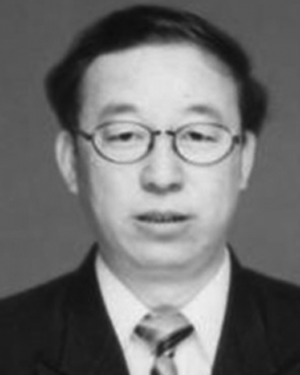
Harbin Institute of Technology, Harbin, China
Dianguo Xu (Fellow, IEEE) received the B.S. degree in control engineering from the Harbin Engineering University, Harbin, China, in 1982, and the M.S. and Ph.D. degrees in electrical engineering from Harbin Institute of Technology (HIT), Harbin, China, in 1984 and 1989, respectively.
In 1984, he joined the Department of Electrical Engineering, HIT, as an Assistant Professor. Since 1994, he has been a Professor with the Dep...Show More
Dianguo Xu (Fellow, IEEE) received the B.S. degree in control engineering from the Harbin Engineering University, Harbin, China, in 1982, and the M.S. and Ph.D. degrees in electrical engineering from Harbin Institute of Technology (HIT), Harbin, China, in 1984 and 1989, respectively.
In 1984, he joined the Department of Electrical Engineering, HIT, as an Assistant Professor. Since 1994, he has been a Professor with the Dep...View more

Harbin Institute of Technology, Harbin, China
Yijie Wang (Senior Member, IEEE) was born in Heilongjiang Province, China, in 1982. He received the B.S., M.S., and Ph.D. degrees in electrical engineering from the Harbin Institute of Technology, Harbin, China, in 2005, 2007, and 2012, respectively.
From 2012 to 2014, he was a Lecturer with the Department of Electrical and Electronics Engineering, Harbin Institute of Technology. From 2014 to 2017, he was an Associate Professor with the Department of Electrical and Electronics Engineering, Harbin Institute of Technology. Since 2017, he has been a Professor with the Department of Electrical and Electronics Engineering, Harbin Institute of Technology. His research interests include dc–dc converters, soft-switching power converters, power factor correction circuits, digital control electronic ballasts, and LED lighting systems.
Prof. Wang is an Associate Editor of IEEE Transactions on Industrial Electronics, IEEE Journal of Emerging and Selected Topics in Power Electronics, IEEE Access, IET Power Electronics, and Journal of Power Electronics.
Yijie Wang (Senior Member, IEEE) was born in Heilongjiang Province, China, in 1982. He received the B.S., M.S., and Ph.D. degrees in electrical engineering from the Harbin Institute of Technology, Harbin, China, in 2005, 2007, and 2012, respectively.
From 2012 to 2014, he was a Lecturer with the Department of Electrical and Electronics Engineering, Harbin Institute of Technology. From 2014 to 2017, he was an Associate Professor with the Department of Electrical and Electronics Engineering, Harbin Institute of Technology. Since 2017, he has been a Professor with the Department of Electrical and Electronics Engineering, Harbin Institute of Technology. His research interests include dc–dc converters, soft-switching power converters, power factor correction circuits, digital control electronic ballasts, and LED lighting systems.
Prof. Wang is an Associate Editor of IEEE Transactions on Industrial Electronics, IEEE Journal of Emerging and Selected Topics in Power Electronics, IEEE Access, IET Power Electronics, and Journal of Power Electronics.View more

Harbin Institute of Technology, Harbin, China
Tao Li (Graduate Student Member, IEEE) was born in Liaoning, China, in 1997. He received the B.S. and M.S. degrees in electrical engineering from the Dalian University of Technology (DUT), Dalian, China, in 2018 and 2021, respectively. He is currently working toward the Ph.D. degree in electrical engineering with the School of Electrical Engineering and Automation of Harbin Institute of Technology (HIT), Harbin, China.
His current research interests include wireless power transfer, magnetic coupler design, and simultaneous wireless power and data transfer.
Tao Li (Graduate Student Member, IEEE) was born in Liaoning, China, in 1997. He received the B.S. and M.S. degrees in electrical engineering from the Dalian University of Technology (DUT), Dalian, China, in 2018 and 2021, respectively. He is currently working toward the Ph.D. degree in electrical engineering with the School of Electrical Engineering and Automation of Harbin Institute of Technology (HIT), Harbin, China.
His current research interests include wireless power transfer, magnetic coupler design, and simultaneous wireless power and data transfer.View more

Harbin Institute of Technology, Harbin, China
Ming Zeng was born in Hunan, China, in 1999. He received the B.S. degree in electrical engineering, in 2021, from the Harbin Institute of Technology, Harbin, China, where he is working toward the M.S. degree.
His research interests include wireless power and data transfer and magnetic coupling structure design.
Ming Zeng was born in Hunan, China, in 1999. He received the B.S. degree in electrical engineering, in 2021, from the Harbin Institute of Technology, Harbin, China, where he is working toward the M.S. degree.
His research interests include wireless power and data transfer and magnetic coupling structure design.View more

Harbin Institute of Technology, Harbin, China
Jianwei Mai (Student Member, IEEE) was born in Henan, China, in 1994. He received the B.S. degree in electrical engineering, in 2017, from the Harbin Institute of Technology, Harbin, China, where he is working toward the Ph.D. degree.
His research interests include inductive power transfer and magnetic coupling structure design.
Jianwei Mai (Student Member, IEEE) was born in Henan, China, in 1994. He received the B.S. degree in electrical engineering, in 2017, from the Harbin Institute of Technology, Harbin, China, where he is working toward the Ph.D. degree.
His research interests include inductive power transfer and magnetic coupling structure design.View more

Harbin Institute of Technology, Harbin, China
Peng Gu (Graduate Student Member, IEEE) was born in Harbin, Heilongjiang Province, China. He received the B.S. degree in electrical engineering from the Huazhong University of Science and Technology, Wuhan, China, in 2015, and the M.S. degree in electrical engineering from the China Electric Power Research Institute (CEPRI), Beijing, China, in 2018. He is currently working toward the Ph.D. degree in electrical engineering with the School of Electrical Engineering and Automation of Harbin Institute of Technology (HIT), Harbin, China.
His current research interests include wireless power transfer, magnetic coupling structure design, electromagnetic transient analysis, overvoltage and insulation coordination of EHV/UHV ac system, and dc–dc converter.
Peng Gu (Graduate Student Member, IEEE) was born in Harbin, Heilongjiang Province, China. He received the B.S. degree in electrical engineering from the Huazhong University of Science and Technology, Wuhan, China, in 2015, and the M.S. degree in electrical engineering from the China Electric Power Research Institute (CEPRI), Beijing, China, in 2018. He is currently working toward the Ph.D. degree in electrical engineering with the School of Electrical Engineering and Automation of Harbin Institute of Technology (HIT), Harbin, China.
His current research interests include wireless power transfer, magnetic coupling structure design, electromagnetic transient analysis, overvoltage and insulation coordination of EHV/UHV ac system, and dc–dc converter.View more

Harbin Institute of Technology, Harbin, China
Dianguo Xu (Fellow, IEEE) received the B.S. degree in control engineering from the Harbin Engineering University, Harbin, China, in 1982, and the M.S. and Ph.D. degrees in electrical engineering from Harbin Institute of Technology (HIT), Harbin, China, in 1984 and 1989, respectively.
In 1984, he joined the Department of Electrical Engineering, HIT, as an Assistant Professor. Since 1994, he has been a Professor with the Department of Electrical Engineering, HIT. He was the Dean of School of Electrical Engineering and Automation, HIT, from 2000 to 2010. He was the vice president of HIT, from 2014 to 2020. He has authored/coauthored more than 600 technical papers. His research interests include renewable energy generation technology, power quality mitigation, sensorless vector-controlled motor drives, and high-performance servo system.
Prof. Xu is a Chairman of IEEE Harbin Section, Co-EIC of the IEEE Transactions on Power Electronics, and an Associate Editor of the IEEE Transactions on Industrial Electronics, and the IEEE Journal of Emerging and Selected Topics in Power Electronics. He was the recipient of the 2018 IEEE IAS Outstanding Achievement Award.
Dianguo Xu (Fellow, IEEE) received the B.S. degree in control engineering from the Harbin Engineering University, Harbin, China, in 1982, and the M.S. and Ph.D. degrees in electrical engineering from Harbin Institute of Technology (HIT), Harbin, China, in 1984 and 1989, respectively.
In 1984, he joined the Department of Electrical Engineering, HIT, as an Assistant Professor. Since 1994, he has been a Professor with the Department of Electrical Engineering, HIT. He was the Dean of School of Electrical Engineering and Automation, HIT, from 2000 to 2010. He was the vice president of HIT, from 2014 to 2020. He has authored/coauthored more than 600 technical papers. His research interests include renewable energy generation technology, power quality mitigation, sensorless vector-controlled motor drives, and high-performance servo system.
Prof. Xu is a Chairman of IEEE Harbin Section, Co-EIC of the IEEE Transactions on Power Electronics, and an Associate Editor of the IEEE Transactions on Industrial Electronics, and the IEEE Journal of Emerging and Selected Topics in Power Electronics. He was the recipient of the 2018 IEEE IAS Outstanding Achievement Award.View more


